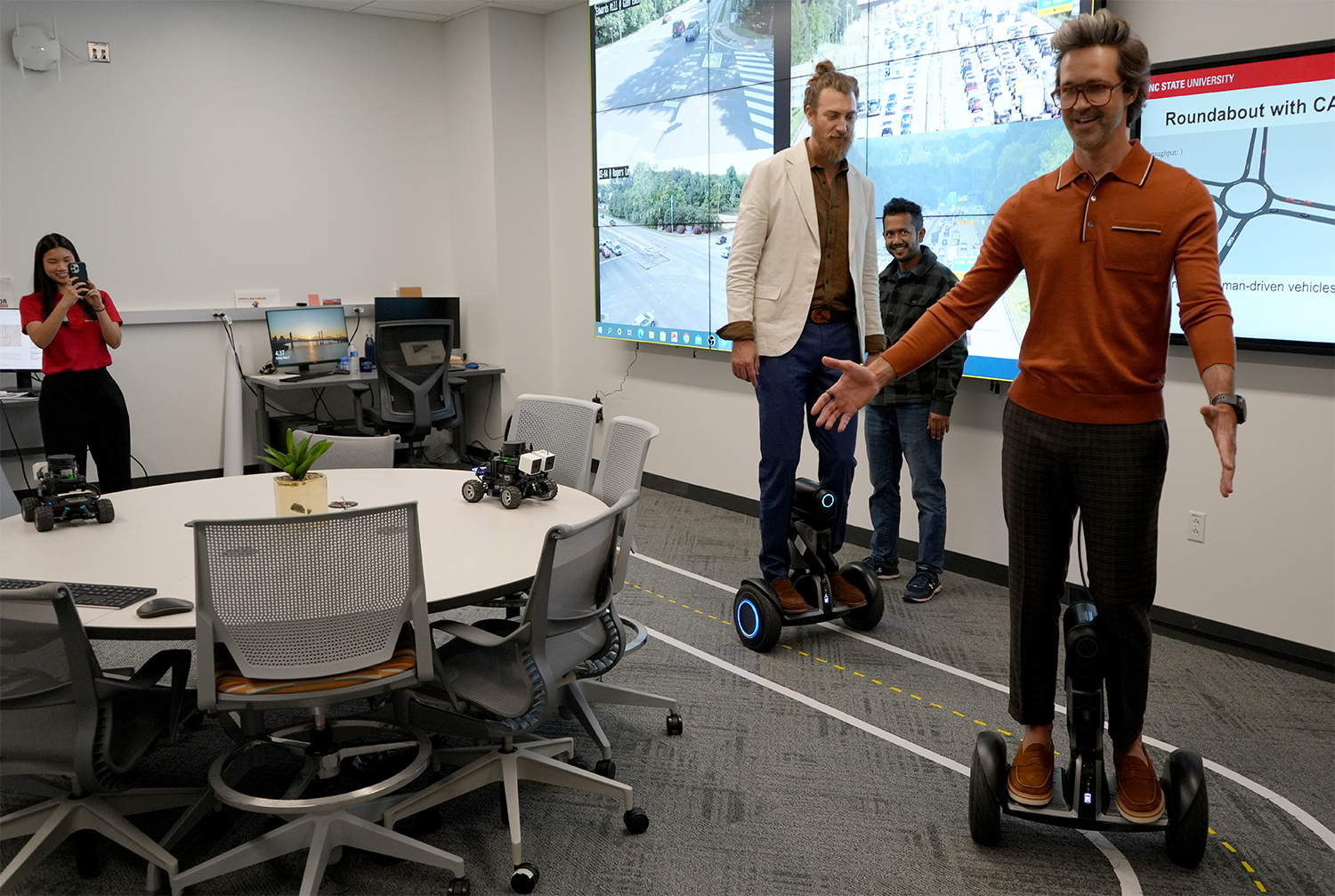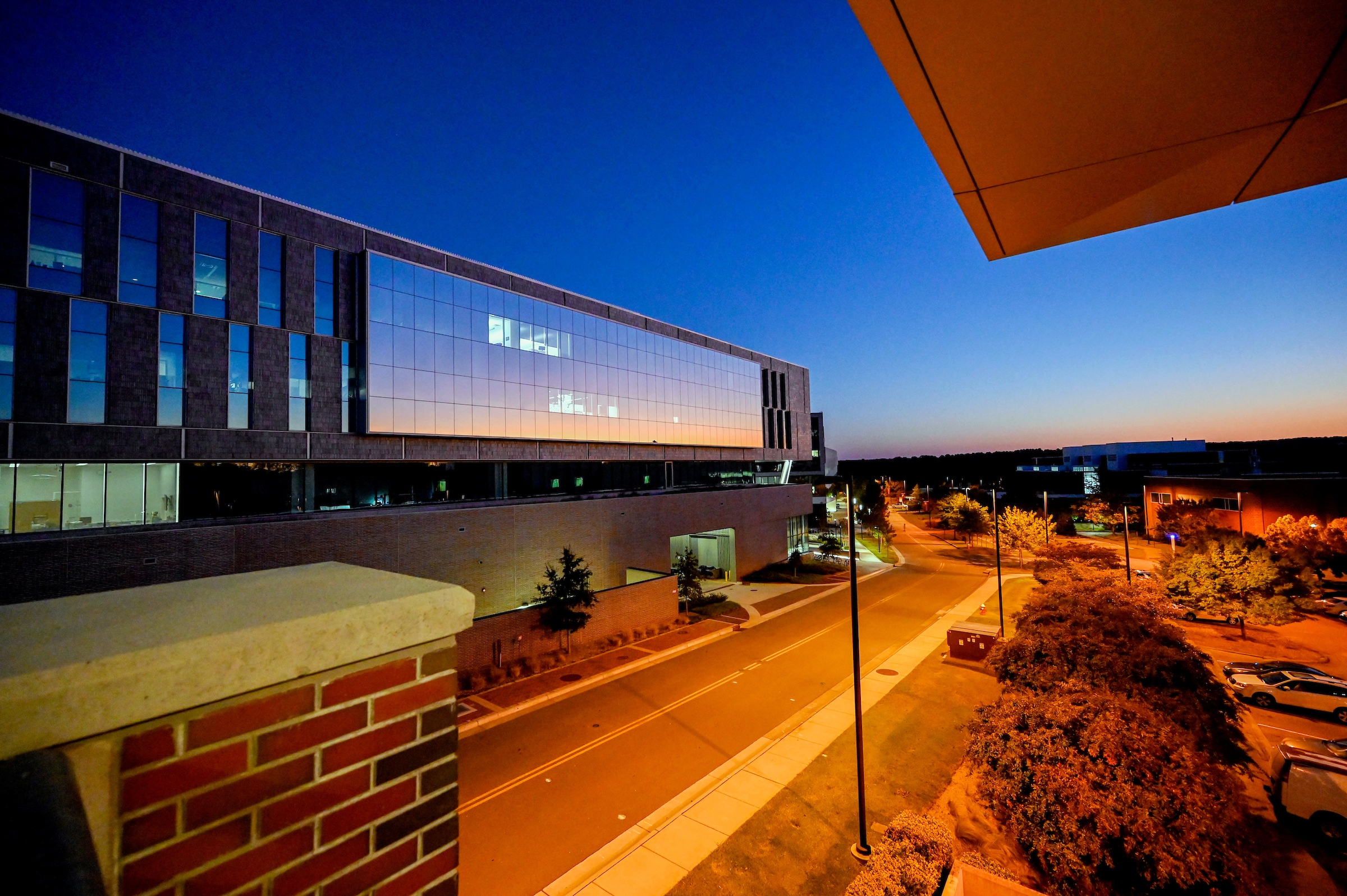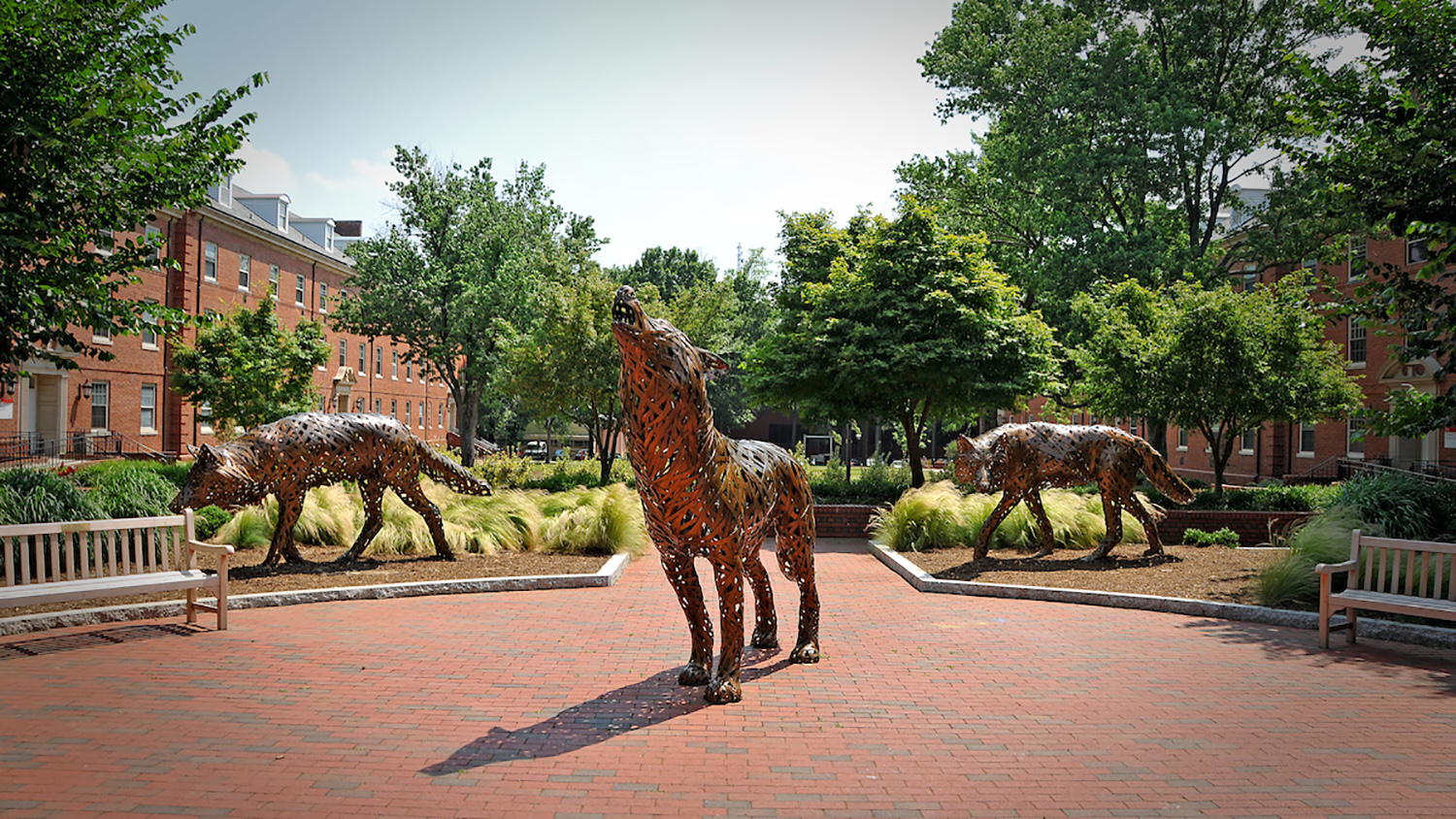Fulbright scholars head to Rwanda
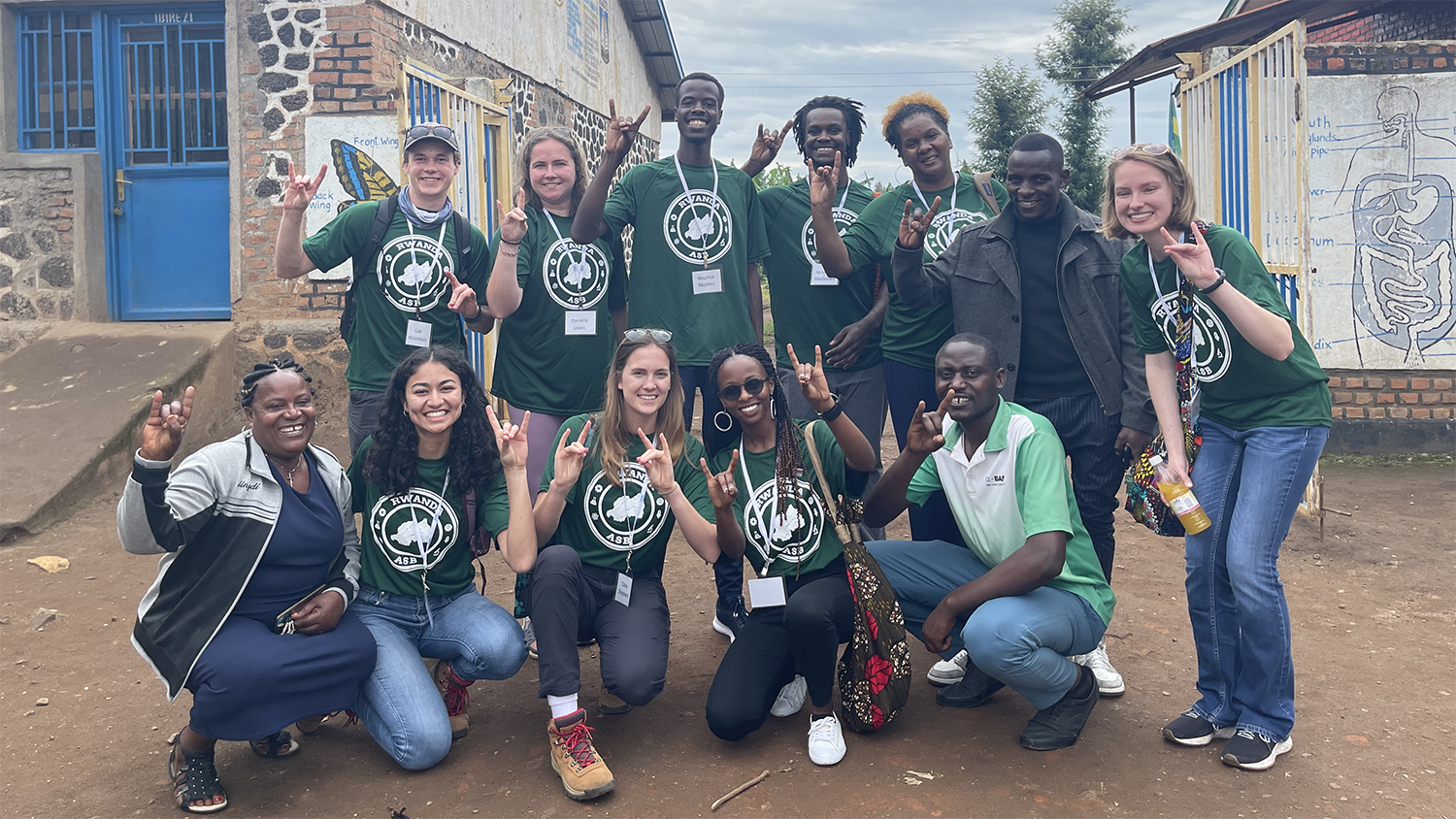
When Meriem Laroussi and Amy Isvik applied for Fulbright grants last year, they didn’t know they would both end up in Rwanda.
In fact, Laroussi said, “I had no idea Amy was applying until we both won.”
The Fulbright program provides approximately 8,000 scholarships annually for graduate study, to conduct research or to teach English abroad. This year, 11 NC State students were awarded 2023 Fulbright Scholarships, a new record. The other students are traveling to Denmark, South Korea, Taiwan and more.
Laroussi is a 2023 master’s graduate in industrial engineering and won the English Teaching Assistant (ETA) Grant. Isvik is a Ph.D. student in computer science who received the Fulbright grant for study and research. Both have been to Rwanda on previous trips with NC State.
“That’s why I chose Rwanda,” Laroussi said. “I already have connections there which will allow me to enhance my impact on the community.”
Because of the accelerated bachelor’s / master’s program, Laroussi graduated with her master’s degree this spring. She taught as a teaching assistant both semesters and did other activities through the Women and Minority Engineering Programs (WMEP).
“We have a program on campus called the Alternative Service Break,” she said. “Every year, they offer short-term, service-based experiences in different locations. WMEP partners with Student Leadership and Engagement every year to do one in Rwanda centered around STEM outreach.
“I was one of the student leads this past year for that experience. In March 2023, we led a trip to Rwanda and we worked in four primary schools, mostly fifth and sixth grade in Musanze, a city in northwest Rwanda.”
Laroussi plans to teach at a private, all-girls school in Kigali and focus largely on teaching English fluency and cultural context to STEM students.
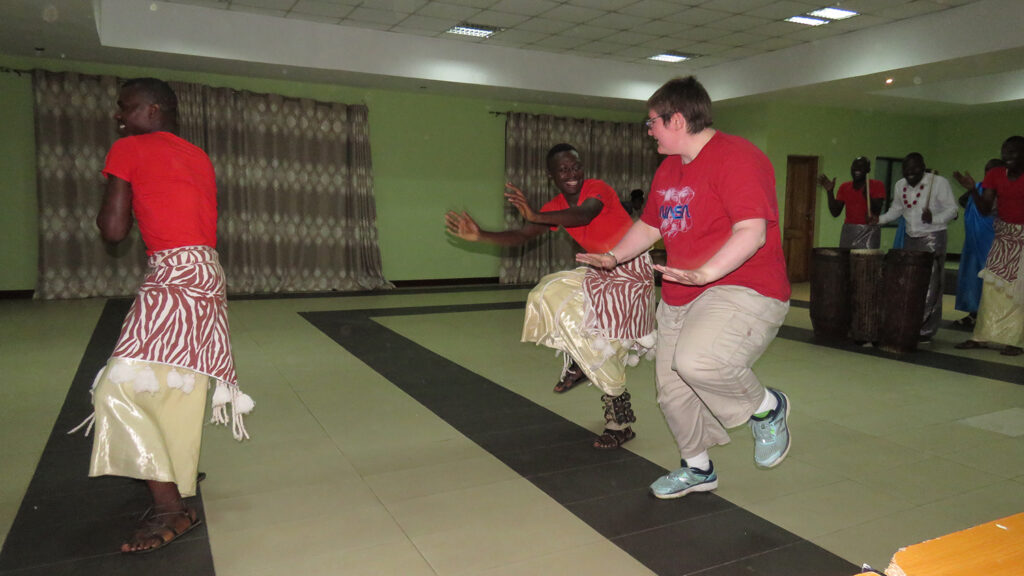
In Isvik’s Ph.D. program, she does both research and teaching. At NC State, her research has focused on computing-infused lessons, in which teachers bring in a programming element or the ability to learn computing and computer science concepts into a core area class or elective.
“For example, we work a lot with Reedy Creek Middle School [in Cary, North Carolina] and we had a food web simulation where they coded a food web in block-based programming language, so they learned both about coding and the things they have to learn at the same time,” said Isvik.
“That’s nice because not all students get to take computing classes or camps. The biggest factor on if you’ll take those classes in high school or college is if you’ve taken them previously, so putting it into a core class means that everyone gets to try it out.”
In Rwanda, Isvik is training teachers to use computing-infused lessons in their math and science classes, providing support for those teachers and looking at what the difference is in support and new barriers that these teachers might face. Several schools in Rwanda do offer coding classes, but it tends to be specialized and not open to all students.
Isvik is partnering with University of Rwanda College of Education and the African Center for Excellence in Teaching and Learning Math and Science, but she hopes to do her research outside of university spaces as well.
“Based on the reality of where research happens, most of the schools where this has been tested out are school districts near universities, often a little more privileged than other school districts,” she said.
Isvik arrived in Rwanda in September and will be there for nine months. Those with the English Teaching Assistant Grant like Laroussi are in Rwanda from October until July.
“I want to come at it from a lens that’s not imperialistic and more, ‘What am I learning from them and what are they learning about the U.S.,’” Laroussi said. “For ETAs, we work very strongly with the U.S. embassy in the host countries.”
She continued, “I couldn’t have done it without the support of the faculty and staff at NC State, who really encouraged me to apply. I was not going to do it on my own. It’s been a very supportive community overall.”
- Categories:
